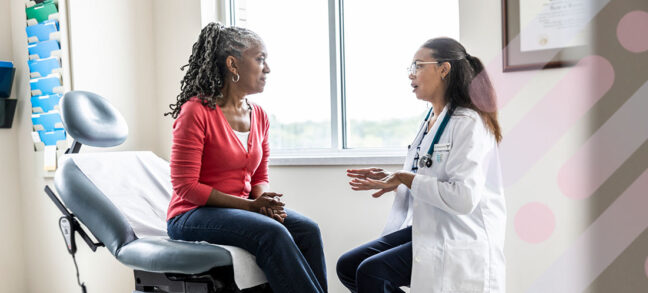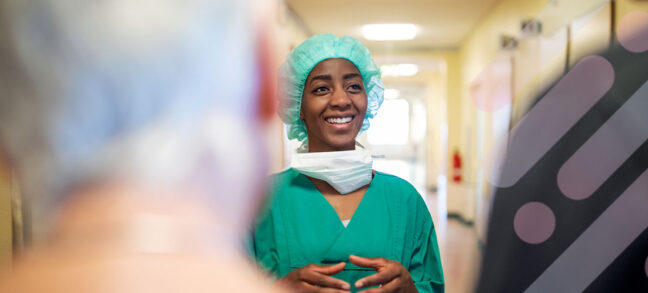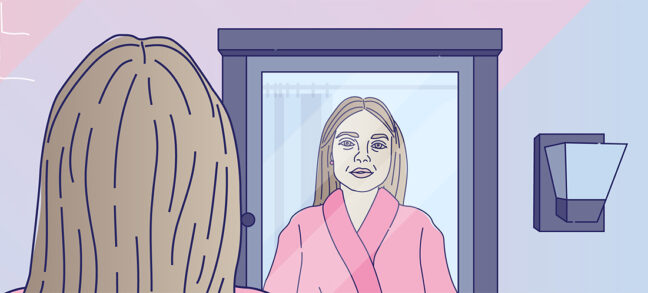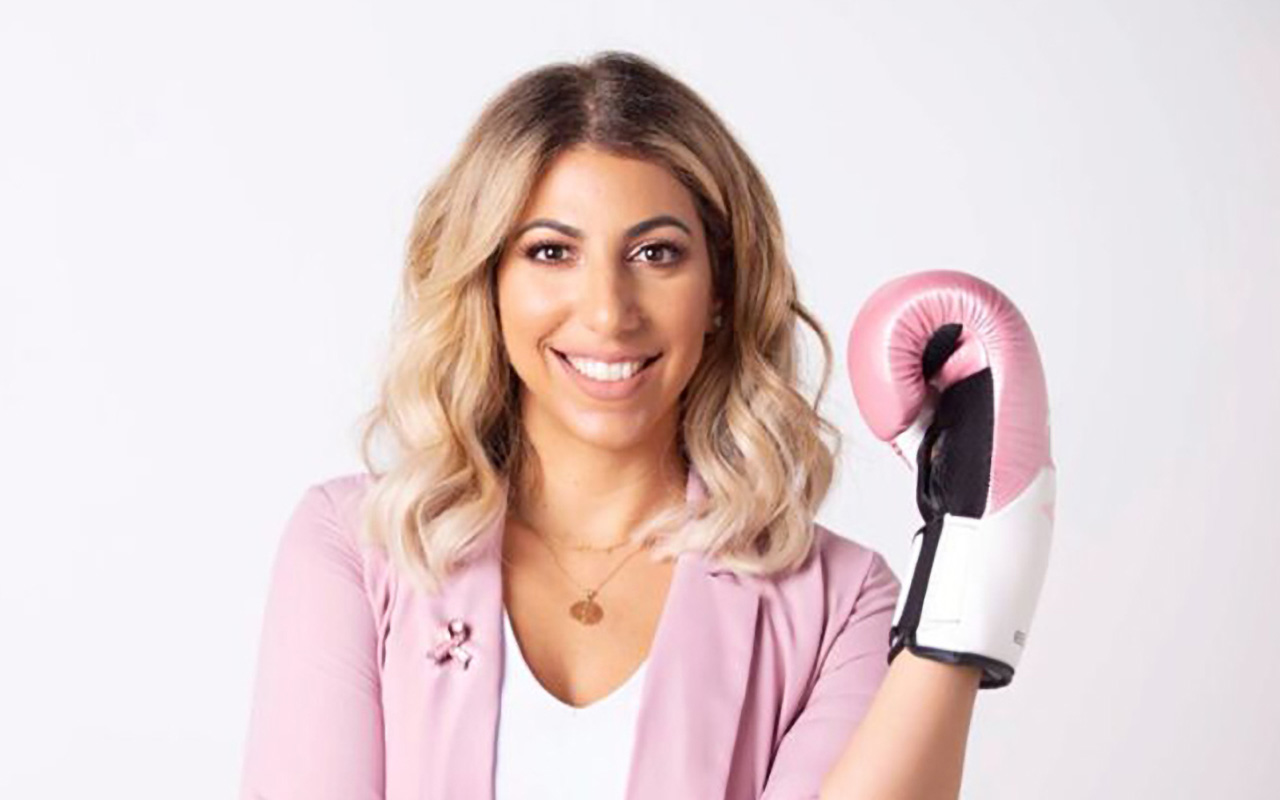There’s an automatic sense of complicity that you feel when you cross paths with another woman who is going through or has gone through breast cancer. It’s a bond that joins you and makes you feel as if you are not alone on this journey. I recently met Jessica, a fellow breast cancer survivor and after speaking with her, I quickly realized how much we had in common. We’re both from Miami. Jessica was diagnosed with Stage 3 breast cancer in June of 2017. I was diagnosed as Stage 1 only a couple of months later. We were both at the same hospital. Jessica was diagnosed after accidentally being elbowed by her husband in his sleep. I was diagnosed after my boyfriend tried to tickle me and I pushed him away. As a result, we both felt a lump in our breast.
We are both advocates for women’s health, and we both agree that people aren’t talking about breast cancer enough – especially in our Latina community. Breast cancer is the most commonly diagnosed cancer among Hispanic women1 which is why I launched the #TeTocaTocarte (“It’s time to touch yourself”) campaign on my Instagram with the goal of encouraging women in our community to perform self-exams, receive routine checkups and talk about their options.
While Jessica and I have our similarities, like all previvors and survivors, our experiences were extremely different, especially with reconstruction. Jessica chose to undergo a double mastectomy and free flap reconstruction, using tissue from her abdomen to recreate her breasts. Unlike my surgical plan, Jessica’s included Resensation®, a step taken during surgery that reconnects the nerves in the reconstructed breast with nerves in the chest with the goal of potentially restoring sensation. I didn’t ask about losing sensation when developing my plan, let alone my options for restoring it – and a lot of women don’t. I still have numbness in my chest, so learning about Resensation and the possibility of having sensation again is something that really matters to me and to many other women. We are young breast cancer survivors with a lot of life left in us and after everything we have been through, we want to feel as “normal” as possible. I connected with Jessica to talk about the option to regain breast sensation in hopes that her experience can help other women start the process of feeling “normal” yet again. Check out our conversation below.
Clara: What was your experience learning about different breast reconstruction options?
Jessica: I decided to have a double mastectomy with no sparing of anything. I did not want to spare the nipple or the ducts. I wanted it all gone. After my mastectomy, I decided against implants and chose to do a free flap reconstruction. That’s when I heard about Resensation.
Clara: Nobody ever talked to me about options for restoring sensation. How did you learn about Resensation?
Jessica: My doctor. One of my questions to my doctor before my mastectomy was, “Am I ever going to feel again?” As a nurse, I knew that when they removed the breast tissue, the nerves that provided the sensation to my chest were also going to be cut so I figured that area of my body would be permanently numb. That’s when my doctor told me about Resensation and told me I’d be a candidate for it. It was something that took some additional time during the reconstruction procedure but did not require an additional surgery which was important to me. With one of my fears being that I would never be able to feel again, I told him to go for it. Absolutely.
Clara: Why was restoring your lost sensation important for you?
Jessica: Initially after the surgery, I wasn’t touching my breasts. I didn’t want anything to do with them because I felt nothing. I was really upset, so I would never touch them. That changed after about three months when some of my sensation started to return. I started touching my breasts again because I was happy to start to feel small things again. Resensation, for me, gave me a different life. Without it, I think I would have been down and out. Without sensation I think I would forever feel like that part of my body wasn’t there—that it wasn’t connected to me. It’s upsetting for women to have something attached to them that they can’t enjoy. It makes you feel disconnected from your body.
Clara: How did you know you were regaining your sensation?
Jessica: I would go to the hospital every couple of months for a nurse to perform a sensory test to see where I would feel and little by little the margin of where I was feeling would grow. The test uses pin pricks and small pinches to test your sensory recovery. The first time the nurse checked me after my mastectomy, I didn’t even realize someone was checking me because I couldn’t feel it, but that’s because nerve regeneration takes time. After about three months, I went to get a checkup and I finally felt her checking me and I started to cry. The nurse asked me what was wrong. She thought she was hurting me, but I said, “No! I can feel you. And if you do hurt me, I’m going to feel it!” Three months after my surgery, I could feel all the way up my breast on the side. And now a year later, I am continuing to regain more and more sensation.
Clara: How has your life changed since your surgery?
Jessica: I felt grief when I finished my surgeries and lost my sensation. Feeling a hug, feeling pleasure, feeling my children lay on my chest – I couldn’t feel any of that initially after my mastectomy. My children are older, but they still lay on me and to not be able to feel that was initially hard. But now that my sensation has returned, I can.
Clara: I think it’s important that doctors start recommending this to patients. One of the turn-offs of having a mastectomy is that you risk never being able to feel again. As a young, healthy woman, that’s scary. What do you wish you could tell other previvors and survivors about their options?
Jessica: I was lucky that I found out about Resensation through my doctor, but I know a lot of women don’t know about it and don’t know about their options. I also don’t know a lot of people who’ve had the option for flap surgery, so it’s important to talk with your doctor about your options.
Thinking about your options? Find and contact a Resensation surgeon to make a plan today.
The level of sensation restored following use of the Resensation technique may vary and cannot be guaranteed, due to unique anatomy and other considerations. Please consult a surgeon for more detailed information.
Resensation Blog

How does mastectomy impact the nerves in the breast?
One sometimes overlooked aspect of mastectomy is its impact on nerves. Read what happens to nerves during mastectomy and explore…
Read More
What happens during implant breast reconstruction with Resensation®?
By repairing sensory nerves, Resensation® enables you to potentially regain sensation to your chest. Read how this procedure works during…
Read More
how resensation® helped Leanna feel secure in her family’s future
With Resensation®, Leanna can be there to watch her kids grow up—without losing the feeling of being whole.
Read More
sensory retraining: what is it, and how can it help me after resensation®?
Sensory retraining is a series of exercises designed to help you reconnect with your body after breast reconstruction with Resensation®.
Read More